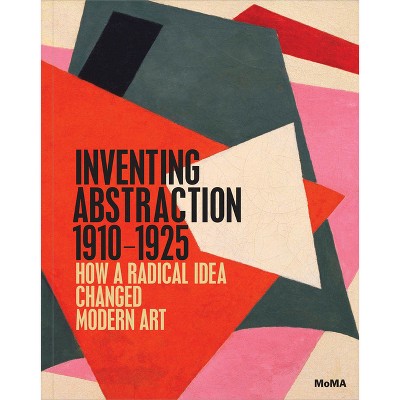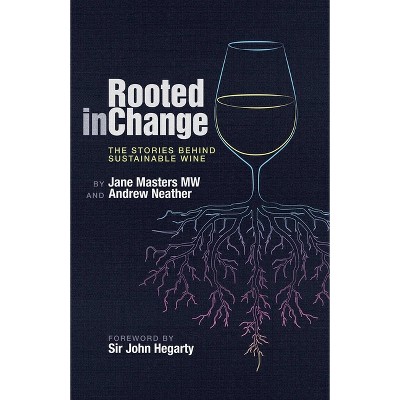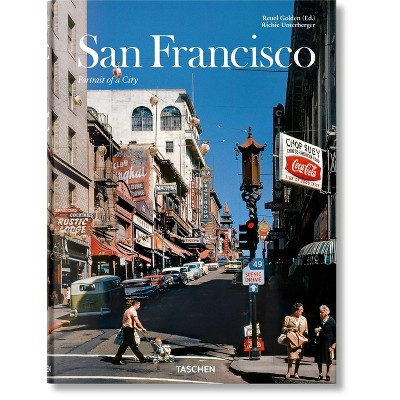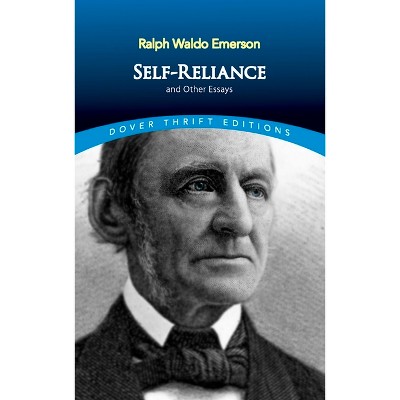Sponsored

Frank Lloyd Wright and Ralph Waldo Emerson - by Ayad Rahmani (Hardcover)
In Stock
Sponsored
About this item
Highlights
- Frank Lloyd Wright and Ralph Waldo Emerson: Transforming the American Mind is an interdisciplinary volume of literary and cultural scholarship that examines the link between two pivotal intellectual and artistic figures.
- About the Author: Ayad Rahmani is professor of architecture at Washington State University, where he teaches courses in design and theory.
- 352 Pages
- Architecture, History
Description
About the Book
"Frank Lloyd Wright and Ralph Waldo Emerson: Transforming the American Mind is an interdisciplinary volume of literary and cultural scholarship that examines the link between two pivotal intellectual and artistic figures, probing how the author's writings influenced the architect's campaign against dominant strains of American thought. Inspired by Emerson's writings on the need to align exterior expression with interior self, Wright believed that architecture was not first and foremost a matter of accommodating spatial needs, but a tool to restore intellectual and artistic freedom, long lost in the process of modernization. Ayad Rahmani shows that Emerson's writings provide an avenue for interpreting Wright's complex approach to country and architecture. The two thinkers cohered around a common concern for a nation derailed by forces that were not only nefarious, but which also flew in the face of the country's original promise. In Emerson's condemnations of slavery and inequality, Wright found inspiration for seeking redress against the humiliations suffered by the modern worker, be it at the hands of an industrial manager or office boss. His designs sought to challenge dehumanizing labor practices and open minds to the beauty and science of agriculture and the natural world. Emerson's example helped Wright develop architecture that aimed less at accommodating a culture of clients and more at raising national historical awareness while also arguing for humane and equitable policies. As evidence of these interventions, Rahmani details the genesis of recent developments in urban agriculture, rooftop gardens, and cohousing. Frank Lloyd Wright and Ralph Waldo Emerson presents a new approach to two vital thinkers whose impact on American society remains evident to this day"--Book Synopsis
Frank Lloyd Wright and Ralph Waldo Emerson: Transforming the American Mind is an interdisciplinary volume of literary and cultural scholarship that examines the link between two pivotal intellectual and artistic figures. It probes the degree to which the transcendentalist author influenced the architect's campaign against dominant strains of American thought. Inspired by Emerson's writings on the need to align exterior expression with interior self, Wright believed that architecture was not first and foremost a matter of accommodating spatial needs, but a tool to restore intellectual and artistic freedom, too often lost in the process of modernization.
Ayad Rahmani shows that Emerson's writings provide an avenue for interpreting Wright's complex approach to country and architecture. The two thinkers cohered around a common concern for a nation derailed by nefarious forces that jeopardized the country's original promise. In Emerson's condemnations of slavery and inequality, Wright found inspiration for seeking redress against the humiliations suffered by the modern worker, be it at the hands of an industrial manager or an office boss. His designs sought to challenge dehumanizing labor practices and open minds to the beauty and science of agriculture and the natural world. Emerson's example helped Wright develop architecture that aimed less at accommodating a culture of clients and more at raising national historical awareness while also arguing for humane and equitable policies. Frank Lloyd Wright and Ralph Waldo Emerson presents a new approach to two vital thinkers whose impact on American society remains relevant to this day.Review Quotes
"There is a vast literature on Frank Lloyd Wright, but this book offers a new level of insight. . . . [Rahmani] uses Wright's favorite thinker, Emerson, as a lens to explore Wright's conception of himself as a prophet whose architecture would unsettle and elevate Americans. . . . This lucidly written work is a real contribution to American studies as well as to the history of architecture. Profusely illustrated and thoroughly documented with notes and bibliography. Highly recommended."--CHOICE
"By exploring Wright and Emerson at the intersection of their thoughts and creations, Rahmani substantially deepens our intellectual understanding of both men with an abundance of interconnected, fresh insights."--Jack Quinan, author of Frank Lloyd Wright's Buffalo Venture: From the Larkin Building to Broadacre City
"Frank Lloyd Wright was an important interdisciplinary thinker as well as a great architect, publishing close to twenty books. Ayad Rahmani, also an architect and interdisciplinary thinker, offers an invigorating and original interpretation of Wright in the context of his Emersonian roots. Rahmani includes provocative comments on Wright in relation to modern technology, the atomic age, critical theory, and much more. Rahmani's interdisciplinary approach enables us to contextualize Wright in relation to the history of ideas and the modern critical analysis of culture at large."--David Michael Hertz, author of Angels of Reality: Emersonian Unfoldings in Wright, Stevens, and Ives
"Part intellectual biography and part history of American architecture, Ayad Rahmani's book is a rich and engaging exploration of Frank Lloyd Wright's philosophical scaffolding. Rahmani demonstrates, in particular, the centrality of Ralph Waldo Emerson's contributions to Wright's worldview and his architectural theories and craft. An authoritative and beautifully written study."--Scott Slovic, coeditor of Ecocritical Aesthetics: Language, Beauty, and the Environment
About the Author
Ayad Rahmani is professor of architecture at Washington State University, where he teaches courses in design and theory. He also serves on the board of the Frank Lloyd Wright Building Conservancy. He is the author of two previous books, the most recent being Kafka's Architectures.
















